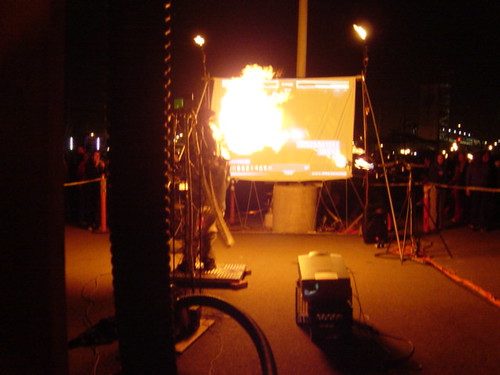(There’s some irony in writing about Texas Hold’em – or poker in general – on a blog, when the overwhelming majority of comment and trackback spam I see these days is for poker sites. Nevertheless…)
I got my gaming addiction at a very early age, and despite the looks of it from my biography page, it’s never been limited to video games. Before the age of 10, most of my desires rested in board games of all shapes and sizes. When I was 7 or 8, I was grounded temporarily for spending the first day we had cable doing nothing but watching game shows on USA. My parents would be more than happy to show you pictures of me in a cabin in Maine pretending to host Press Your Luck.
Most of all, I have maintained a healthy level of interest in card games over the years. Sure, I played Uno, and I still have a huge pile of Magic: The Gathering cards kicking around my old bedroom – these are not terribly unique traits. But how many people do you know that would check out every book the library had about card games? (Hopefully, not many – we’re a frightening bunch.)
Poker, more than any other game, appeals to my sense of logic and analytical nature. I started off playing five-card draw; the constant tactical decisions on what to draw were, well, addictive. Sometime in the late 90’s I fell into Texas Hold’em, and while there weren’t a ton of opportunities to play in Ithaca, I did find somewhere online during college to let me partake in my poker needs: PokerRoom.
Now, there are a lot of poker sites online; I have a handful of criteria that must be met in order to satisfy me, and amazingly, this very first site I fell upon met all of them.
- The site has to support OS X. Sorry, but if I can’t play, I can’t play. (Pokerroom uses a Java client, so not only will it run on Mac and PC, but also on Linux.)
- It has to have play money games. I play to remove stress and have a good time, and the nagging sensation that I’m blowing all of my savings doesn’t help my sense of enjoyment. Pokerroom supports both real money and play money ring games and tournaments.
- The interface has to be well thought out. Not only does pokerroom’s interface have a lot of well thought out nuances, but there’s also a light version, allowing me to decide how much fluff I want to deal with. I appreciate that. (Apparently, the downloadable client – Windows only, sadly – also shows you TV-style percentages for all-in calls. Very cool.)
- It’d be nice to have more than just hold’em. Sure, I can play Poker all day long, but sometimes some variety is nice. Luckily, PokerRoom also has Omaha, 7 Card Stud, Chinese Poker, and a variety of casino games. It’s a good chance to branch out – I loved learning how to play Chinese Poker, even if I am terrible at it.
- A community is good, too. I’m big on social software, and I want to be able to make connections to other players if I feel the need. PokerRoom has Pokah!, which integrates into the site well and has groups, articles, and forums.
- Don’t bully me into real money play. PokerRoom has always been very low-pressure about playing for real cash, and I appreciate that the play-money players are treated the same way the company treats the real-money players. Additionally, there’s a whole set of preferences where you can limit your daily wagering or play time, or block yourself for lengths of time. Responsibility is a good thing.
- Keep it fresh. If you look at the news page, you can see that the Pokerroom team has been really busy this year. To keep me coming back to a gaming site, there’s got to be progress, and PokerRoom keeps advancing along.
- Keep it interesting. While I don’t play in pay-money tournaments, there are more than I can keep count of happening on a daily basis. Prize packages can be huge, and there’s lots of opportunities to make it to Vegas for the World Series of Poker.
Now, no one gaming site will ever be perfect – Pokerroom shares the problem of kids who jump into tournaments and push all-in every hand until someone knocks them out, often clearing half the table in the first five minutes. But outside of that and the always moronic chatters, it’s an excellent Poker site.
So why am I posting about it rather than, well, playing? As it turns out, Pokerroom will be dealing its one billionth hand sometime today. (For the purposes of handing out even more cash, play-money games are unavailable until 12 hours after the billionth hand – hence the time for the post!) Congratulations to the entire PokerRoom.com team – here’s to another billion!
Disclaimer: I do not work for or have any connection to Pokerroom.com, other than being a very satisfied player.
